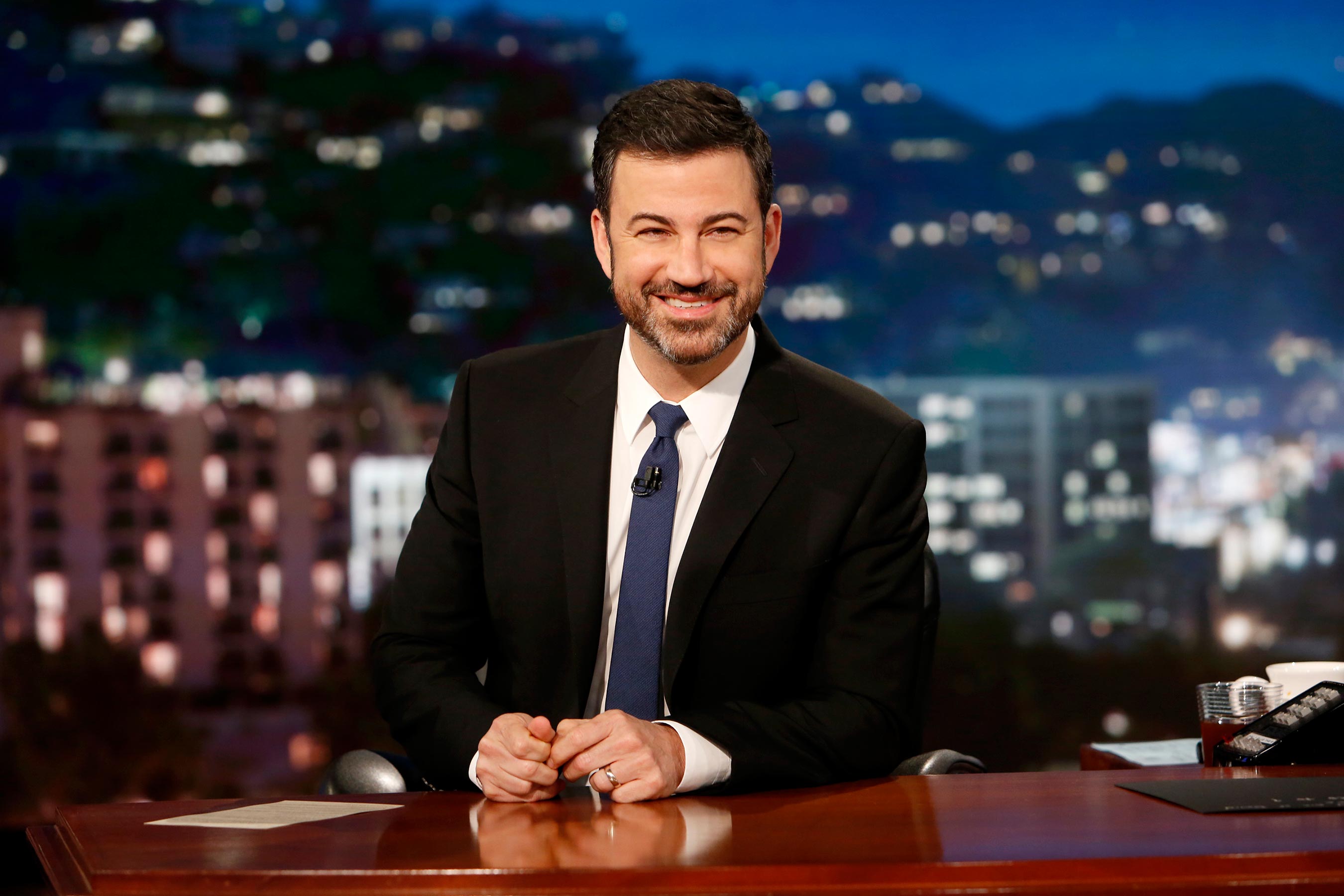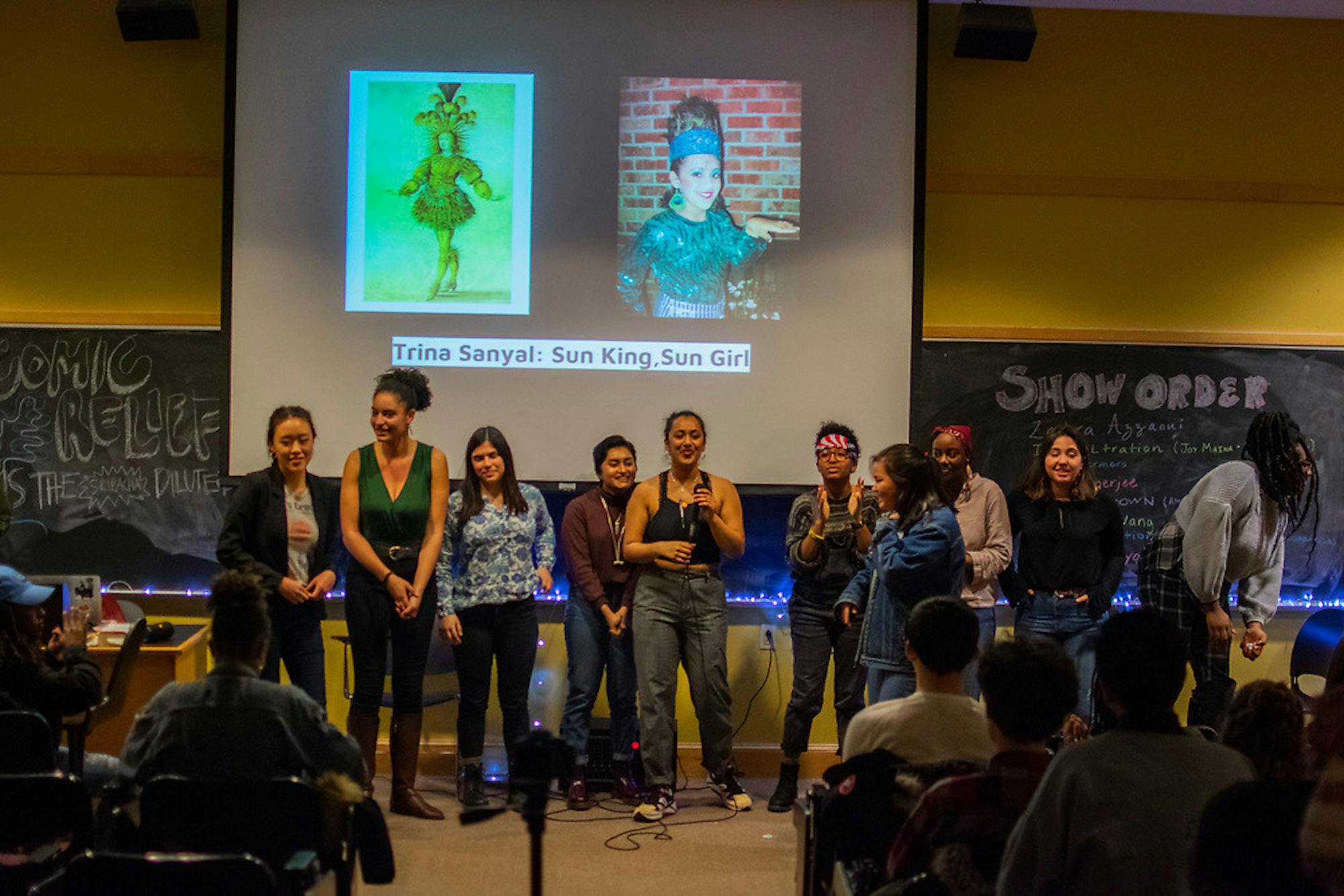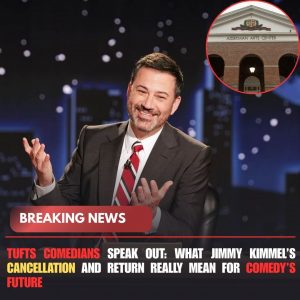Editor’s note: Eric Frankel is currently a staff writer for the Daily’s Fun & Games section. Frankel was not involved in the writing or editing of this article.
When ABC took Jimmy Kimmel off the air on Sept. 17, many of us were simply experiencing it as concerned Americans. However, there are people around the country — including many at Tufts — who experienced it through a much more specific lens: that of the comedian.

Tufts boasts over 350 student organizations; among these, there are groups that do comedy in the form of improvisation, sketches, Saturday Night Live-inspired skits, satire journalism and more. All this to say, comedy is an important part of many Tufts students’ lives, and as such, Kimmel’s cancellation was especially impactful.
Senior Francis Powell is the social chair of Jumbo Night Live — Tufts’ Saturday Night Live equivalent. Powell explained that for JNL, much like its inspiration, politics plays a central role for their comedy — specifically their “Weekend Update” segment.
In reference to Kimmel’s cancellation, Powell explained that, “It’s absolutely horrible … and it’s a blatant attack on free speech.”
Even for comedy groups that are not explicitly political, the news of Kimmel was fear-inducing.
“I felt like I was going insane,” junior Eric Frankel, an actor for The Institute Sketch Comedy, said. “It was very shocking and appalling”
The Institute is an audition-based sketch comedy group, a structure that Frankel and junior Maya Patt — a writer for The Institute — agree lends itself to a wider range of comic topics than just politics.
“We don’t want the work that we make to just be commentary on Tufts or the greater world. We also want to be a space where things can be funny and you can have some sort of escapism,” Frankel said.
But even for a comedy group that often covers non-political topics, Kimmel’s cancellation set off alarm bells.

“The group’s writing reflects the cultural moment,” Patt said. “I was kind of shocked to see the way in which late night television [was] the first thing to go … the first thing on the chopping block.”
However, for Jack Wilan — a co-editor in chief for the Zamboni, Tufts’ satire magazine — this was no surprise. For him, Kimmel’s cancellation was very in line with President Donald Trump’s political agenda.
“He’s been threatening to do this forever, and now he’s got the power to do it,” Wilan said.
Wilan described the cancellation as a predictable next step in Trump’s ongoing consolidation of power.
“Censoring the media and censoring critics is something that every authoritarian gets around to doing at some point,” Wilan said.
He continued to note the specific role that comedy plays in this process, particularly as an early target for censorship.
“[Censorship] often starts in corners that aren’t necessarily news, but [that] are definitely criticizing, such as comedy,” Wilan said. “[Comedy] is an easy place to begin censoring, because they’re not censoring official news.”
Wilan was not the only person to share this sentiment. Powell used a metaphor to express his similar concerns.
“It’s a ‘canary in the coal mine’ situation,” he said. “Once [comedy]’s gone, that’s how you know things are getting bad.”
The metaphor refers to the practice of bringing canaries into coal mines to detect carbon monoxide; if the canaries collapsed, the miners knew there was a leak. For Wilan and Powell, comedy is the canary whose ‘death’ portends a much larger censorship campaign to come.

This situation does seem to have an ostensibly happy ending. Six days after his cancellation — in the wake of mass consumer mobilization and boycott to the tune of around 1.7 million people — Kimmel’s show was reinstated.
“It was very relieving,” Powell said. “The people responded as they should have.”
The comedians largely agreed, however, that this was more of an idiosyncratic victory — won for one of the most influential people in comedy — than a blanket sign of more victories to come.
In Frankel’s words: “I am left feeling like the aftermath of a stomach ache: The stomach ache is over, but I [still] don’t feel great.”
“It’s not actually important whether Jimmy Kimmel gets cancelled or not,” Wilan said. “It is like a warning [to] everyone else in the media industry … [that] the government is watching, if you say something that is offensive toward [them].”
In fact, as we move forward from Kimmel’s cancellation, Tufts comedians expressed a great deal of unease for the future of comedy.
From Wilan’s experience as the co-leader of a student publication, he attested that the detriments of these government encroachments into comedy will impact more than just those who are explicitly censored.
“[The threat of censorship] makes people very nervous, and it doesn’t necessarily take them off the air, but it makes them less likely to make jokes or make comments that [criticize] the government. It makes them feel less willing to experiment, less willing to make fun of things that seem contentious,” he said.

This idea is not just conjecture, either.
“Increasingly, since Trump was elected … I’ve gotten three to four emails from various alumni asking that their names be taken off of sketches,” Frankel said.
Frankel and Patt, who wish to pursue careers in comedy, also explained that censorship culture can be limiting when applying for jobs.
“If I were applying to a job [now], and I was submitting sketches I’d written, I think I would be much less willing to submit something political,” Patt said.
Whether it be previous writers who no longer feel comfortable standing by their work or future comedians who no longer feel comfortable submitting their pieces to potential employers, the truth is evident: A culture of censorship — even if most comedians aren’t actually being censored — costs us unique voices and perspectives.
For those comedians, something else is lost as well: the spirit of comedy as a whole.
“It’s … really upsetting,” Patt said. “[The freedom to poke fun at politics is] why I love comedy. … It’s not only something that makes people laugh, … it can be a really good way to point out things that are absurd or … wrong about society.”





